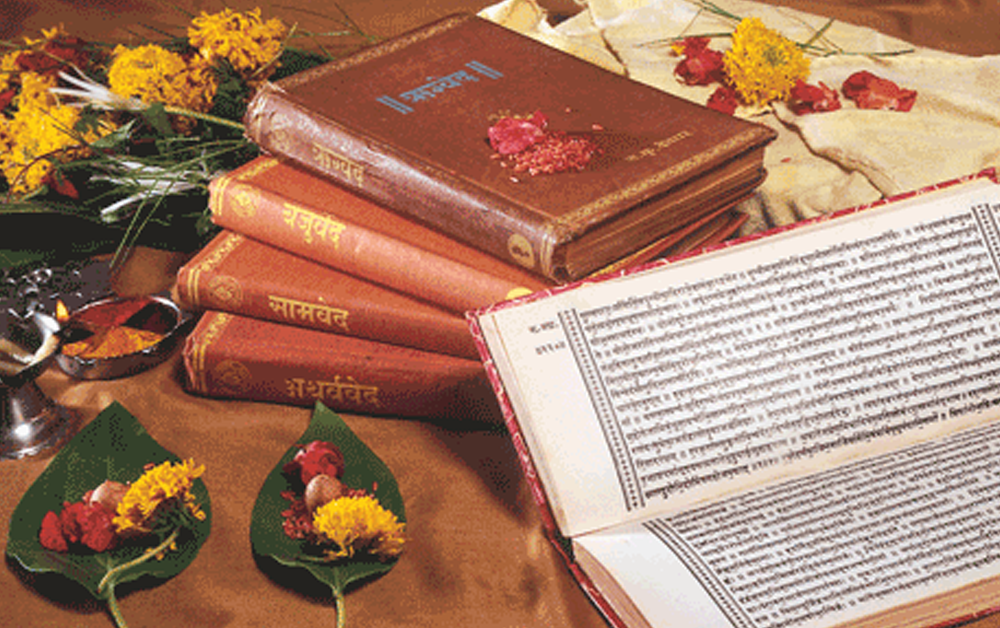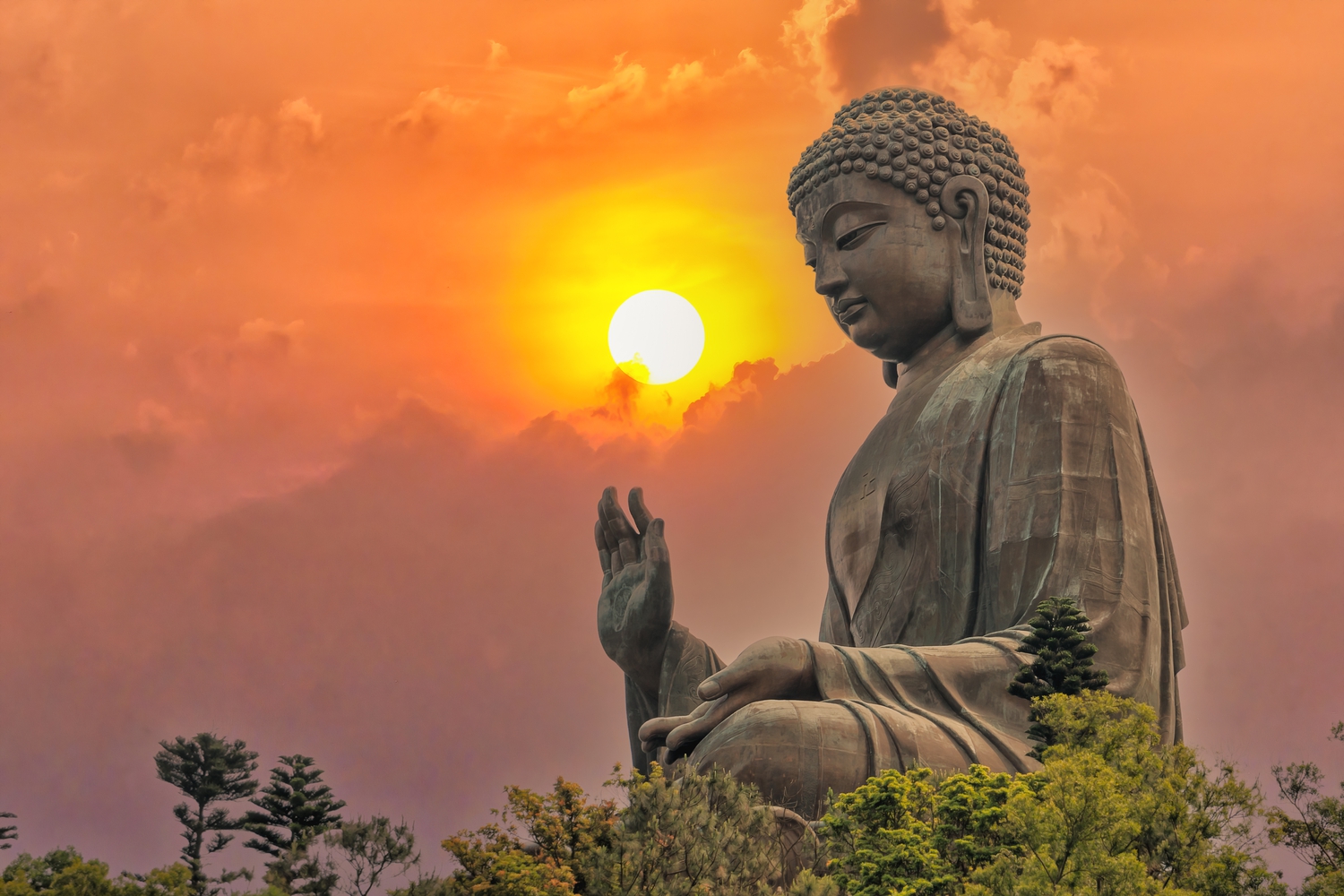Hindu philosophy, one of the world's oldest and most profound philosophical traditions, offers a rich tapestry of spiritual insights and intellectual discourse. It encompasses a wide array of thoughts and practices rooted in ancient Indian culture and spirituality. Understanding Hindu philosophy is essential for both cultural and spiritual enrichment, as it provides a comprehensive framework for living a meaningful and ethical life. Hindu philosophy's significance lies in its ability to address the fundamental questions of human existence, ethics, and the nature of reality. It invites individuals to explore the depths of their consciousness and the universe, encouraging a life of introspection and self-realization.
- Blogs
- General Knowledge
- Comprehensive Guide To Hindu Philosophy 665d6800bdccdd0001d2fc87
Comprehensive Guide to Hindu Philosophy
General Knowledge • 3 Jun, 2024 • 17,034 Views • ⭐ 1.2
Written by Shivani Chourasia

Historical Context

The history of Hindu philosophy dates back to the early Vedic period, around 1500 BCE, making it one of the oldest philosophical traditions in the world. Its foundations are laid in the ancient texts known as the Vedas, which were composed over several centuries and form the bedrock of Hindu thought.
- Vedas: The Vedas are the oldest and most authoritative scriptures in Hinduism, comprising four main texts: the Rigveda, Samaveda, Yajurveda, and Atharvaveda. These texts include hymns, rituals, and philosophical teachings that explore the nature of reality, the self, and the cosmos. The Vedas are divided into four parts: Samhitas (hymns), Brahmanas (rituals), Aranyakas (theological interpretations), and Upanishads (philosophical discourses).
- Upanishads: The Upanishads, often referred to as Vedanta (the culmination of the Vedas), are philosophical texts that delve into the nature of reality and the self. Composed between 800 and 200 BCE, they are a collection of teachings from various sages and seers. Key Upanishads include the Chandogya Upanishad, Brihadaranyaka Upanishad, and Katha Upanishad. These texts introduce central concepts such as Brahman (the ultimate reality) and Atman (the individual soul).
- Bhagavad Gita: The Bhagavad Gita, a 700-verse scripture that is part of the Indian epic Mahabharata, is a dialogue between Prince Arjuna and the god Krishna. Composed around the 2nd century BCE, it addresses the moral and philosophical dilemmas faced by individuals. The Gita covers various paths to self-realization, including karma yoga (the path of action), bhakti yoga (the path of devotion), and jnana yoga (the path of knowledge).
- Brahma Sutras: Also known as the Vedanta Sutras, the Brahma Sutras systematize and summarize the philosophical teachings of the Upanishads. Written by the sage Badarayana around 400-200 BCE, they form the foundational text for the Vedanta school of philosophy.
Core Concepts

Hindu philosophy is characterized by several fundamental concepts that are deeply interconnected and form the basis of its teachings:
GENERAL KNOWLEDGE QUIZ • 10 QUESTIONS • 2 MINS
We've got a General Knowledge quiz for you!
TAP TO PLAY

- Dharma: Dharma refers to the moral and ethical duties and responsibilities that sustain the social and cosmic order. It is a multifaceted concept that encompasses righteousness, law, duty, and order. Dharma varies based on one's age, caste, gender, and occupation, guiding individuals on the path of righteousness and ethical living.
- Karma: Karma is the law of cause and effect, where every action has consequences. Good actions lead to positive outcomes, while bad actions lead to negative consequences. Karma is not just about physical actions but also encompasses thoughts and intentions. It is the force that drives the cycle of birth, death, and rebirth (samsara).
- Moksha: Moksha is the liberation from the cycle of birth and death (samsara) and the realization of one's true nature. It is the ultimate goal of human life in Hindu philosophy. Achieving moksha involves transcending ignorance and realizing the unity of the individual soul (atman) with the ultimate reality (Brahman).
- Samsara: Samsara is the cycle of birth, death, and rebirth that all beings undergo. Driven by karma and the desires of the individual soul, samsara is seen as a cycle of suffering and bondage. Liberation from samsara (moksha) is the ultimate aim of Hindu philosophical practice.
These concepts are integral to Hindu thought, guiding individuals toward a life of ethical conduct, spiritual growth, and ultimate liberation.
Schools of Hindu Philosophy

Hindu philosophy is traditionally divided into six classical schools, each with its unique teachings and interpretations:
Nyaya:
INDIA QUIZ • 10 QUESTIONS • 2 MINS
We've got a India quiz for you!
TAP TO PLAY

- Key Teachings: Nyaya focuses on logic and epistemology, emphasizing the importance of valid knowledge (Pramana) for achieving liberation. It outlines a methodical approach to reasoning and argumentation.
- Important Texts: Nyaya Sutras by Aksapada Gautama.
- Prominent Philosophers: Gautama, Udayana.
Vaisheshika:
- Key Teachings: Vaisheshika is concerned with metaphysics and natural philosophy. It classifies the world (padarthas) such as substance, quality, and action. It posits that everything in the universe can be explained through these categories.
- Important Texts: Vaisheshika Sutras by Kanada.
- Prominent Philosophers: Kanada, Prashastapada.
Samkhya:
- Key Teachings: Samkhya is a dualistic philosophy that distinguishes between Purusha (consciousness) and Prakriti (matter). Liberation is achieved by realizing the distinction between the two and disentangling the self from material nature.
- Important Texts: Samkhya Karika by Ishvara Krishna.
- Prominent Philosophers: Kapila, Ishvara Krishna.
Yoga:
- Key Teachings: Yoga focuses on the practical aspects of spiritual discipline. It outlines a path to self-realization through physical and mental practices, emphasizing the eightfold path (ashtanga yoga) which includes ethical conduct, postures, breath control, sensory withdrawal, concentration, meditation, and ultimate union with the divine.
- Important Texts: Yoga Sutras by Patanjali.
- Prominent Philosophers: Patanjali, Vyasa.
Mimamsa:
- Key Teachings: Mimamsa emphasizes the importance of rituals and dharma. It provides a detailed interpretation of the Vedic texts to understand the nature of duty and the performance of rituals. Mimamsa seeks to uphold the authority of the Vedas and maintain the social and cosmic order through prescribed actions.
- Important Texts: Mimamsa Sutras by Jaimini.
- Prominent Philosophers: Jaimini, Kumarila Bhatta.
Vedanta:
- Key Teachings: Vedanta explores the nature of reality and the self, building upon the teachings of the Upanishads, Bhagavad Gita, and Brahma Sutras. It has several sub-schools, including Advaita (non-dualism), Vishishtadvaita (qualified non-dualism), and Dvaita (dualism), each offering different interpretations of the relationship between the individual soul and the ultimate reality.
- Important Texts: Brahma Sutras, Upanishads, Bhagavad Gita.
- Prominent Philosophers: Adi Shankaracharya (Advaita), Ramanuja (Vishishtadvaita), Madhva (Dvaita).
Modern Interpretations

Hindu philosophy has continued to evolve and adapt in modern times, influenced by contemporary philosophers and scholars who have brought its teachings to a global audience:
- Swami Vivekananda: A key figure in the introduction of Hindu philosophy to the Western world, Swami Vivekananda emphasized the practical aspects of Vedanta and the universal teachings of the Bhagavad Gita. His teachings on selfless service, universal brotherhood, and the unity of all religions have had a profound impact on spiritual thought and practice.
- Sri Aurobindo: Sri Aurobindo integrated the teachings of the Vedas, Upanishads, and Bhagavad Gita into his philosophy of integral yoga. He envisioned a process of human evolution towards a higher state of consciousness and spiritual transformation, emphasizing the importance of both individual and collective growth.
- Mahatma Gandhi: Gandhi applied the principles of non-violence (ahimsa) and truth (satya) from Hindu philosophy in his social and political activism. His commitment to ethical living, social justice, and the pursuit of truth continues to inspire movements for peace and justice around the world.
The global impact of Hindu thought is evident in the widespread practice of yoga, meditation, and the interest in concepts like karma and reincarnation. Hindu philosophy's emphasis on the unity of all life and the interconnectedness of the cosmos resonates with contemporary environmental and spiritual movements.
Practical Applications

Hindu philosophy offers practical principles that can be applied to daily life, promoting a balanced and harmonious existence:
- Yoga: Beyond physical postures, yoga includes practices for mental and spiritual well-being. It promotes discipline, mindfulness, and self-awareness, helping individuals cultivate inner peace and resilience. The practice of yoga integrates physical, mental, and spiritual aspects, contributing to overall well-being.
- Meditation: Techniques such as mindfulness and mantra meditation help achieve mental clarity and inner peace. Meditation practices rooted in Hindu philosophy foster concentration, reduce stress and enhance self-awareness. Regular meditation can lead to profound insights and a deeper connection with the self.
- Ethical Living: Principles of dharma guide individuals to live ethically and responsibly, considering the well-being of others and the environment. Ethical living involves adhering to values such as non-violence, truthfulness, compassion, and self-discipline. These principles encourage harmonious relationships and contribute to the greater good of society.
By integrating these practices into daily life, individuals can achieve a state of balance and harmony, fostering personal growth and contributing to the well-being of their communities.
Comparisons with Other Philosophical Traditions

Hindu philosophy shares similarities and differences with other major philosophical traditions, highlighting its unique contributions and commonalities:
- Western Philosophy: While Western philosophy often emphasizes rationality and empirical evidence, Hindu philosophy integrates spiritual insights and experiential knowledge. Both traditions explore fundamental questions about existence, ethics, and the nature of knowledge. Hindu philosophy's holistic approach, which includes the physical, mental, and spiritual dimensions, offers a complementary perspective to the often analytical approach of Western thought.
- Buddhism: Originating in India, Buddhism shares many concepts with Hindu philosophy, such as karma and samsara. However, Buddhism rejects the concept of a permanent self (atman) and focuses on the Four Noble Truths and the Eightfold Path as the means to achieve liberation. Hindu philosophy's emphasis on the unity of the individual soul with the ultimate reality contrasts with Buddhism's focus on the impermanence of all phenomena.
These comparisons highlight the diverse approaches to understanding human existence and the quest for truth across different cultures and traditions. By studying these philosophical systems, individuals can gain a broader perspective on the nature of reality and the human condition.
Conclusion
Hindu philosophy provides a rich and profound framework for understanding the nature of reality, the self, and the universe. It encompasses a wide range of teachings, practices, and schools of thought that offer valuable insights into living a meaningful and ethical life. By exploring the core concepts, major texts, and practical applications of Hindu philosophy, individuals can gain a deeper appreciation of this ancient tradition and its relevance in contemporary society. Encouraging further exploration and reflection on these teachings can lead to greater personal and spiritual growth.
Hindu philosophy's emphasis on the interconnectedness of all life, the pursuit of truth, and the realization of one's true nature offers a timeless wisdom that continues to inspire and guide individuals on their spiritual journey. As you delve into the teachings of Hindu philosophy, may you find the wisdom and clarity to navigate the complexities of life and achieve a state of inner peace and fulfilment.
Test your General Knowledge! Visit:
https://www.quizzop.com/general-knowledge-quiz/category
Rate this article
Other articles you may like
Buddha Purnima 2024: Celebrating Buddha's Legacy
General Knowledge • 21 May, 2024 • 27,846 Views

The Evolution and Significance of Iconic Logos
General Knowledge • 15 May, 2024 • 33,270 Views

Celebrating Mother's Day: A Global Tribute
General Knowledge • 10 May, 2024 • 32,287 Views

Celebrating May Day: Unity and Rights
General Knowledge • 26 Apr, 2024 • 41,146 Views

Earth Day 2024: Global Commitment & Action
General Knowledge • 22 Apr, 2024 • 42,734 Views





